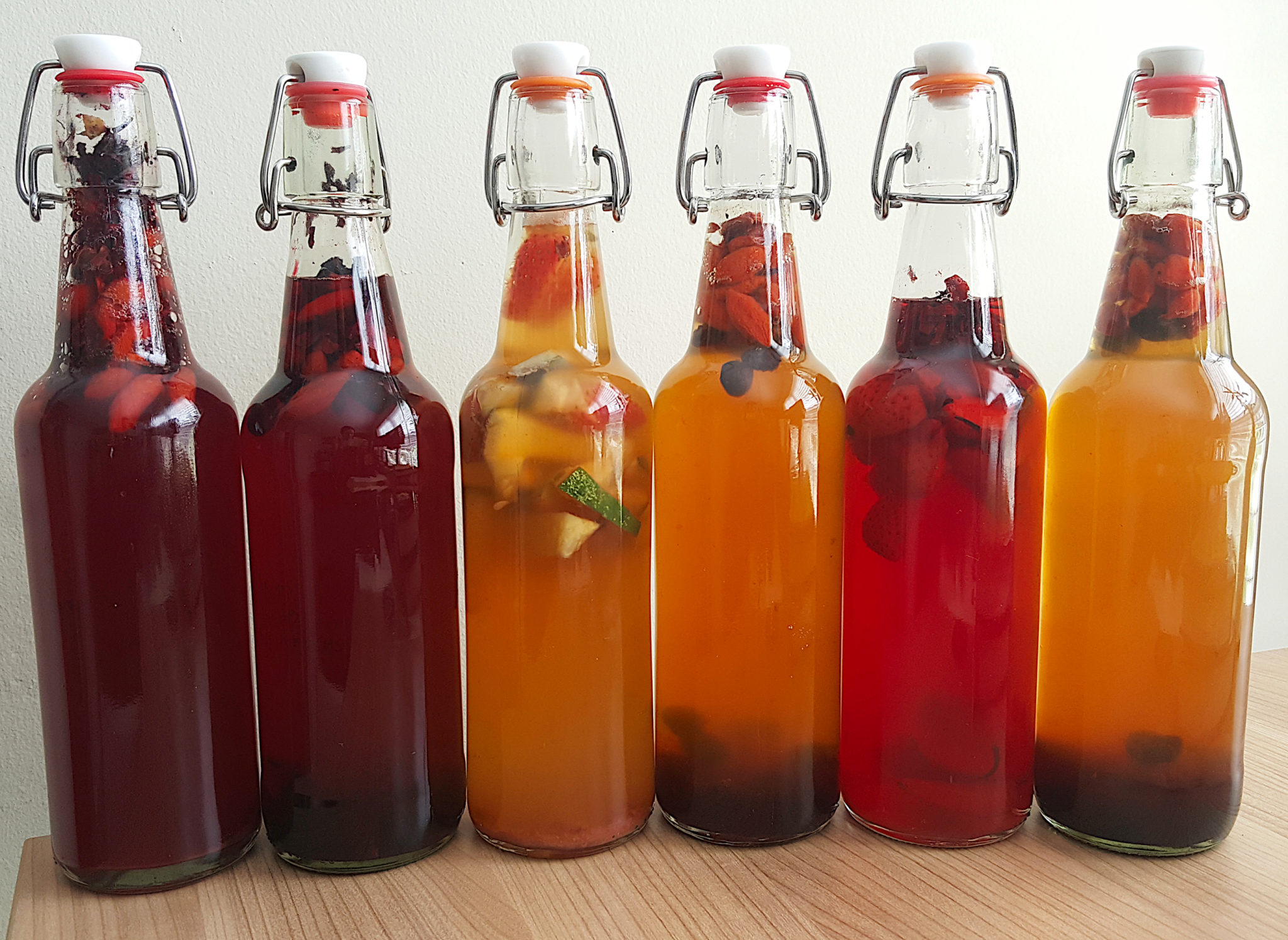
If you’re here, you must be wondering–what is kombucha? We are here to tell you everything you need to know about it. By the time you’re through with this article, you might even be able to make your own!
What is Kombucha? The Basics
Kombucha is essentially fermented sweet tea. As a result of fermentation, kombucha is actually low in sugar and offers many health benefits. From the antioxidants in the tea to the probiotics resulting from fermentation, kombucha has continually gained popularity as a superfood.
How is Kombucha Made?
While “fermented sweet tea” might sound complicated and mysterious, kombucha is actually very easy to make. To make kombucha, you simply add a SCOBY (symbiotic culture of bacteria and yeast) to fresh-brewed sweet tea. You then cover the vessel you have your tea and SCOBY in, and you leave it to ferment for a week or two. Interested in making your own? You can actually purchase a kit with everything you need to make kombucha at home!
As an added benefit, kombucha is generally healthiest when you brew your own. This is because home-brewers control the fermentation time (and thus the amount of sugar), they brew naturally, and they do not pasteurize kombucha. Many store-bought brands pasteurize kombucha to eliminate residual SCOBY matter and stabilize the beverage for shelves, but this unfortunately eliminates many of the health benefits as well.

What Does Kombucha Taste like?
Plain kombucha has a distinct, tart taste that can be somewhat polarizing. This comes from the organic acids present in kombucha. Kombucha can also be flavored with juice, fruit, herbs, and more! As a result, you can make your kombucha taste like just about anything when you brew your own!
Kombucha can be sweet, tart, fruity, floral, spicy, or even chocolatey! It just depends on what you flavor it with. Since it is fermented, kombucha is excellent at pulling flavors from fruits, juice, herbs, and other additions. As an added bonus, kombucha is carbonated and becomes extra fizzy when you flavor it with traditional second fermentation!
How Do You Flavor Kombucha?
In short, you flavor kombucha by placing plain, fermented kombucha in airtight bottles with the items you want to flavor it with. For example, you can make spiced apple cider kombucha by placing plain fermented kombucha, apple slices, and a cinnamon stick in an airtight bottle for a few days! The potential flavor combinations are really endless. Check out our kombucha recipes if you want details on flavor possibilities or the second fermentation process.
What is Kombucha Fermentation?
During fermentation, the yeast in your SCOBY consume sugar and let off ethanol (alcohol) and CO2 (carbonation) as a result. Bacteria in the SCOBY then consume the ethanol, producing various organic acids and keeping alcohol content very low. During regular fermentation, your jar should be covered with something “breathable” like a coffee filter. This allows the bacteria, which only operate aerobically (with oxygen), to “do their thang” and create healthy organic acids. However, it also allows most of the carbonation produced to escape.
Kombucha Second Fermentation Science
On the other hand, kombucha second fermentation takes place in airtight bottles. This means there is very little oxygen present for your kombucha. Fortunately, yeast in your SCOBY can operate anaerobically (without oxygen). As a result, they consume added sugars and let off carbonation and ethanol (alcohol) within your airtight bottle. Even after second fermentation, the alcohol levels present in your kombucha will generally be less than 2% ABV unless you are trying to brew a higher alcohol content. However, you can build LOTS of carbonation during this period!
What is Kombucha to You?
So, you have now gone from a kombucha newbie to an expert! What will kombucha be to you? Are you ready to start home-brewing kombucha? Do you want to know more about kombucha’s health benefits? We hope this is the start of a wonderful health journey for you! Either way, you will have a pretty great answer next time a friend asks you what kombucha is!





